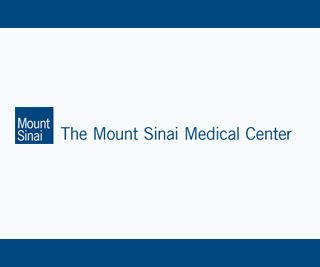
Heart failure is often undiagnosed due to a lack of a universally agreed definition and challenges in definitive diagnosis. The therapy is designed to stimulate production of an enzyme that enables the failing heart to pump more effectively. One in five people who have heart failure are said to die within one year of diagnosis. Heart failure is most often treated with aggressive medical and device therapy, but has no cure. The most common symptoms of heart failure are shortness of breath, feeling tired, and swelling in the ankles, feet, legs, and sometimes the abdomen.
“Mount Sinai Heart is committed to developing ground-breaking therapies and bringing them from bench to bedside,” said Valentin Fuster, MD, Director of Mount Sinai Heart, the Zena and Michael A. Wiener Cardiovascular Institute and the Marie-Josee and Henry R. Kravis Center for Cardiovascular Health, The Mount Sinai Medical Center. “We look forward to further study of this important treatment.”
A team led by Roger J. Hajjar, MD, Research Director of Mount Sinai’s Wiener Family Cardiovascular Research Laboratories and the Arthur & Janet Ross Professor of Cardiology, Medicine, and Gene and Cell Medicine, Mount Sinai School of Medicine developed SERCA2a. This team identified the remarkable potential of the treatment in 1999. And since then it has been pursuing its potential as a gene therapy target. The specially built state-of-the-art pre-clinical laboratories at Mount Sinai have been used for this.
SERCA2a is executed in order to foment production of an enzyme that allows the failing heart to pump efficiently. As per the research SERCA2a was injected through a routine minimally invasive cardiac catheterization. It appeared to revealed clinical benefits in treating this patient population and lowering the severity of heart failure.
“SERCA2a met the primary endpoints and appears to be safe and effective in people with advanced heart failure,†said trial investigator Jill Kalman, MD, Associate Professor, Medicine, Cardiology, Director of the Cardiomyopathy Program, Mount Sinai School of Medicine. “There is a significant unmet need for treatments in this patient population, and these data indicate that SERCA2a is a promising option for them.”
The CUPID (Calcium Up-regulation by Percutaneous administration of gene therapy in cardiac Disease) trial is a randomized, double-blind, placebo-controlled research. It enlisted 39 patients affected with advanced heart failure. This trial was conducted to analyze the security and efficiency of SERCA2a. Patients were asked to receive SERCA2a gene in one of the three doses or placebo and were checked for over six months. This treatment is given to the patient’s heart directly through a routine outpatient catheterization procedure.
It was observed that patient’s in the SERCA2a group exhibited improvement or stabilization in symptoms, heart function, and severity of heart failure. The researchers found an increase in time and reduction in frequency of cardiovascular events. SERCA2a was identified to be safe with no increases in adverse events, disease-related events, laboratory abnormalities, or arrhythmias compared to placebo.
The data were presented at the Heart Failure Congress of the European Society of Cardiology in Berlin.
